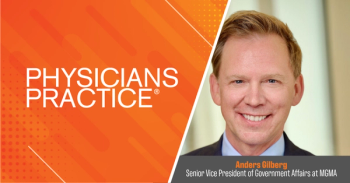
Two court decisions impacting reproductive care items
Recent court rulings reshape reproductive health care privacy and regulations, emphasizing the need for updated HIPAA policies and awareness of state laws.
June 18, 2025 was a significant day for reproductive health care issues. First, the U.S. District Court for the Northern District of Texas - Amarillo Division (Carmen Purl, et al v. United States Department of Health and Human Services, et al., Case No. 2:24-cv-228-Z (N.D. Tex.)) (
Then, The U.S. Supreme Court issued a 6-3 opinion upholding Tennessee’s ban on puberty blockers and hormone therapy for transgender teenagers. United States v. Skrmetti, Attorney General and Reporter for Tennessee, et al., 605 U.S. __ (2025). The
The first take-away is that state laws must be consulted in terms of reproductive health care and related HIPAA-like state laws.
The second take-away relates to the Purl Judgement. To say that the related Memorandum Opinion and Order is layered with legal complexities would be an understatement. Everything from HIPAA, Federalism, Loper Bright Enters v. Raimondo, 603 U.S. 369 (2024) (addressing whether the Administrative Procedures Act (APA) was adhered to and the authority Congress granted to an agency) and Dobbs v. Jackson Women’s Health Org., 597 U.S. 215 (2022), as well as other items were addressed.
The June 18, 2025 Judgment in Purl expressly states the following:
The Court GRANTED Plaintiffs’ Motion for Summary Judgment and DENIED Defendants’ Motion to Dismiss for Lack of Jurisdiction. Accordingly, the HIPAA Privacy Rule to Support Reproductive Health Care Privacy at 89 Fed. Reg. 32976 is VACATED per 5 U.S.C. Section 706(2), except its modifications to 45 C.F.R. Section 164.520. But the provisions at 45 C.F.R. Section 164.520(b)(1)(ii)(F), (G), and (H) are VACATED per 5 U.S.C. Section 706(2). This case is therefore DISMISSED with prejudice. Judgment is rendered accordingly. Purl, Dkt. 111.
Perl’s Plaintiffs raised issues of the definition of a person, the U.S. Department of Health and Human Services (HHS) exceeding it authority prescribed by HIPAA by Congress in 1996 and the alleged inability to report issues of child abuse under the public health exception. Several pages of discussion are dedicated to the Dictionary Act and what constitutes a “person.”
The court adopted the notion that an unborn individual or fetus is a person, even though the
It is important to re-emphasize that 45 C.F.R. 164.512 (aka “Law Enforcement Exception”) – Disclosures for Law Enforcement Purposes Pursuant to Process and as Otherwise Required by Law – must still be followed. Public health activities and more specifically child abuse or neglect is expressly covered under 164.512(b)(ii).The Perl opinion does not grant unfettered access by law enforcement to medical records or designated health record sets without proper procedural safeguards.
The Law Enforcement Exception has been part of the HIPAA regulations for over twenty years. In light of the HIPAA Reproductive Rule, the following portion, 45 CFR § 164.512(f)(1)(ii) is particularly relevant.
(ii) In compliance with and as limited by the relevant requirement of:
(A)A court order or court-ordered warrant, or a subpoena or summons issued by a judicial officer;
(B)A grand jury subpoena; or
(C)An administrative request for which response is required by law, including an administrative subpoena or summons, a civil or an authorized investigative demand, or similar process authorized under law, provided that:
The information sought is relevant and material to a legitimate law enforcement inquiry;
The request is specific and limited in scope to the extent reasonably practicable in light of the purpose for which the information is sought; and
De-identified information [§164.514] could not be reasonably used.
The Law Enforcement Exception has not changed. The varying definitions of “child” does raise serious questions that may coincide with substance use disorder treatment of a female carrying the fetus or failure to attend pre-natal appointments or adhere to pre-natal care and whether or not a provider must report child abuse.
In light of these decisions, covered entities and business associates alike should ensure that their legal hold policies and procedures, as well as their HIPAA Policies and Procedures are updated. Also, another situation which often arises in court proceedings is a discovery request from a government or non-government entity. Regardless of the requestor, procedural Due Process under the U.S. Constitution is required.Reproductive health care remains a dynamic area of law. Persons should take care to stay abreast of federal and state government websites, district court and appellate court cases.
Newsletter
Optimize your practice with the Physicians Practice newsletter, offering management pearls, leadership tips, and business strategies tailored for practice administrators and physicians of any specialty.






